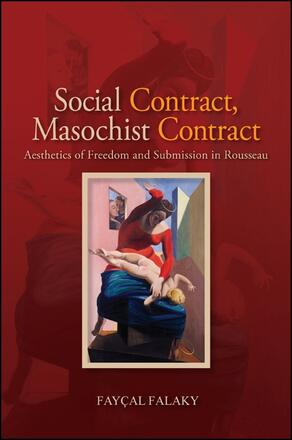
Social Contract, Masochist Contract
Aesthetics of Freedom and Submission in Rousseau
Alternative formats available from:
Provocative reading of the role masochism plays in structuring the aesthetics and political philosophy of Jean-Jacques Rousseau.
Description
Theorization of sensual desire was not uncommon in the eighteenth century; like many materialists of the French Enlightenment, Jean-Jacques Rousseau rejected imperatives founded on metaphysical suppositions and viewed the senses as the only valid source of philosophical knowledge. In Social Contract, Masochist Contract, Fayçal Falaky demonstrates that what distinguishes Rousseau is that the foundational measure on which he bases his materialist philosophy is a sexual instinct endowed, paradoxically, with the same sublime, self-abnegating attributes historically associated with Christian, metaphysical desire. To understand the aesthetics of Rousseau's masochism is, Falaky argues, to understand how ideals of Christian morality and spiritual ennoblement survived the Enlightenment, and how God died, only to be repackaged in new fetishes. Whether it is the imperious mistress of his erotic fantasies, the Arcadian nature of his philosophical reveries, or the sublime Law designed to elevate the citizen from enslaving appetite, Rousseau's fetishes herald the new regulative Ideals of the modern secular state.
Fayçal Falaky is Assistant Professor of French at Tulane University.
Reviews
"…Falaky's work offers historians as well as literary critics a new way to think through the possibilities for future research on some well-trodden ground, and it engages important questions about the relationship of sexuality to civic behavior. For these contributions, it is to be lauded. " — Journal of Modern History